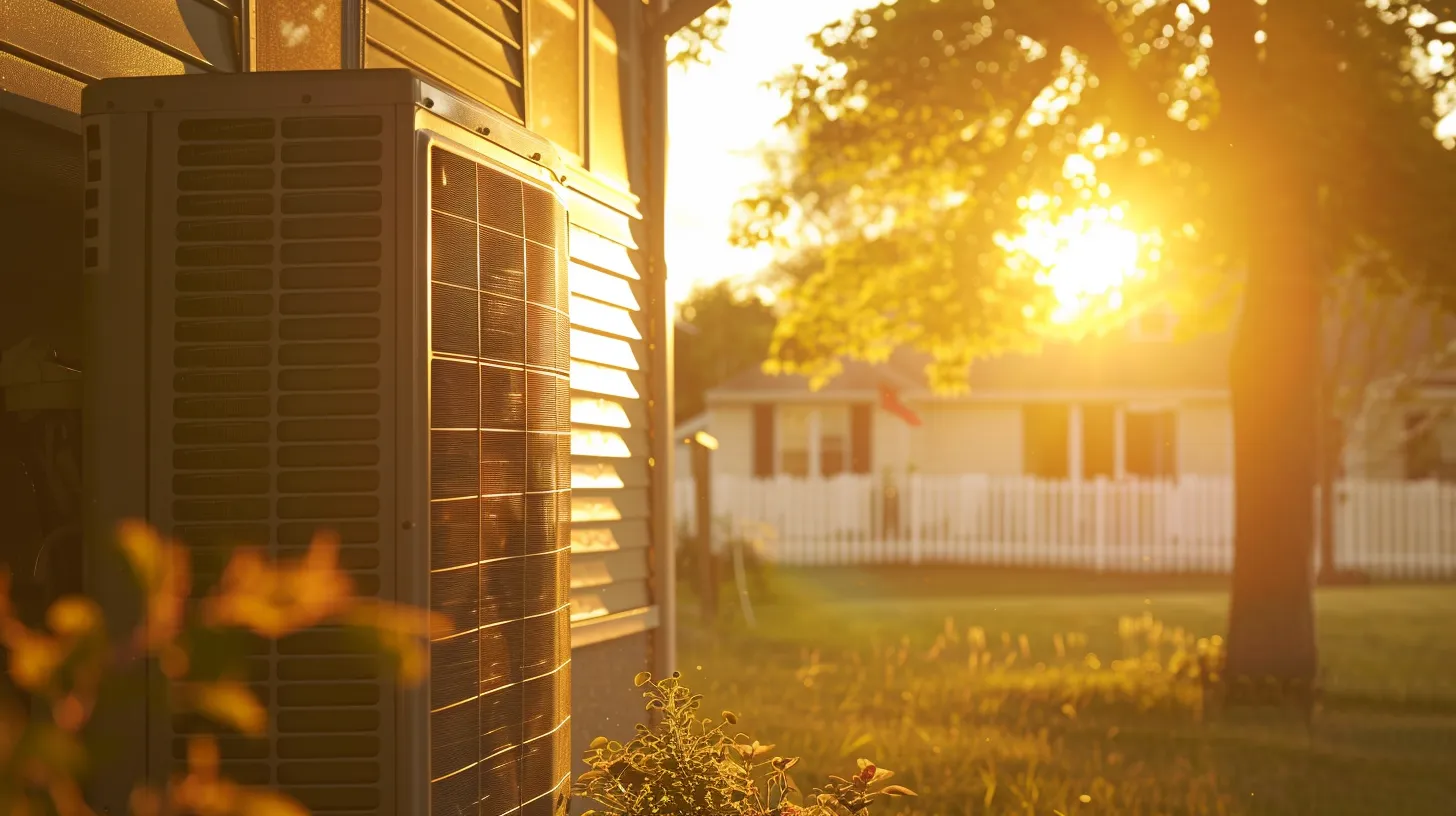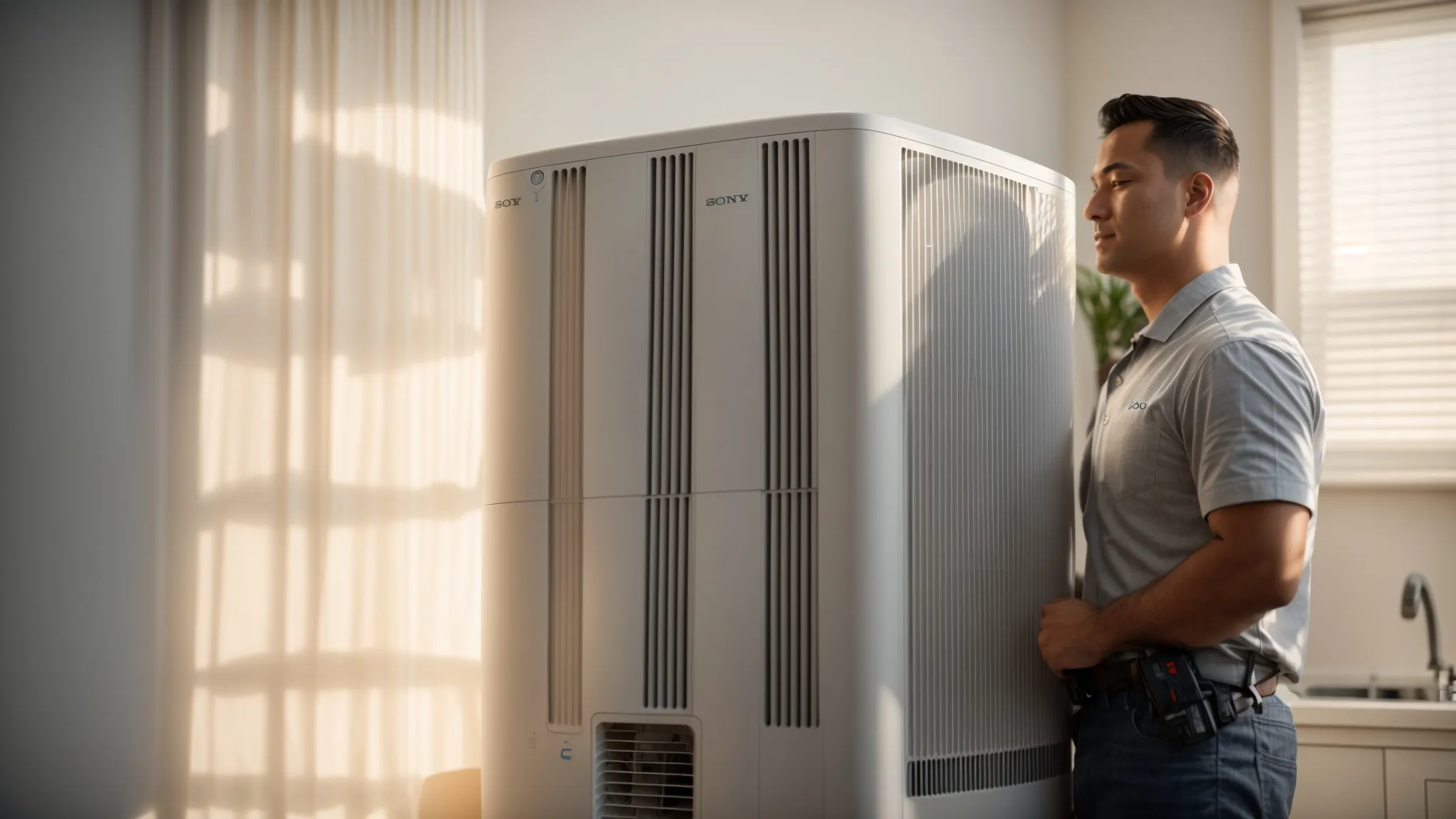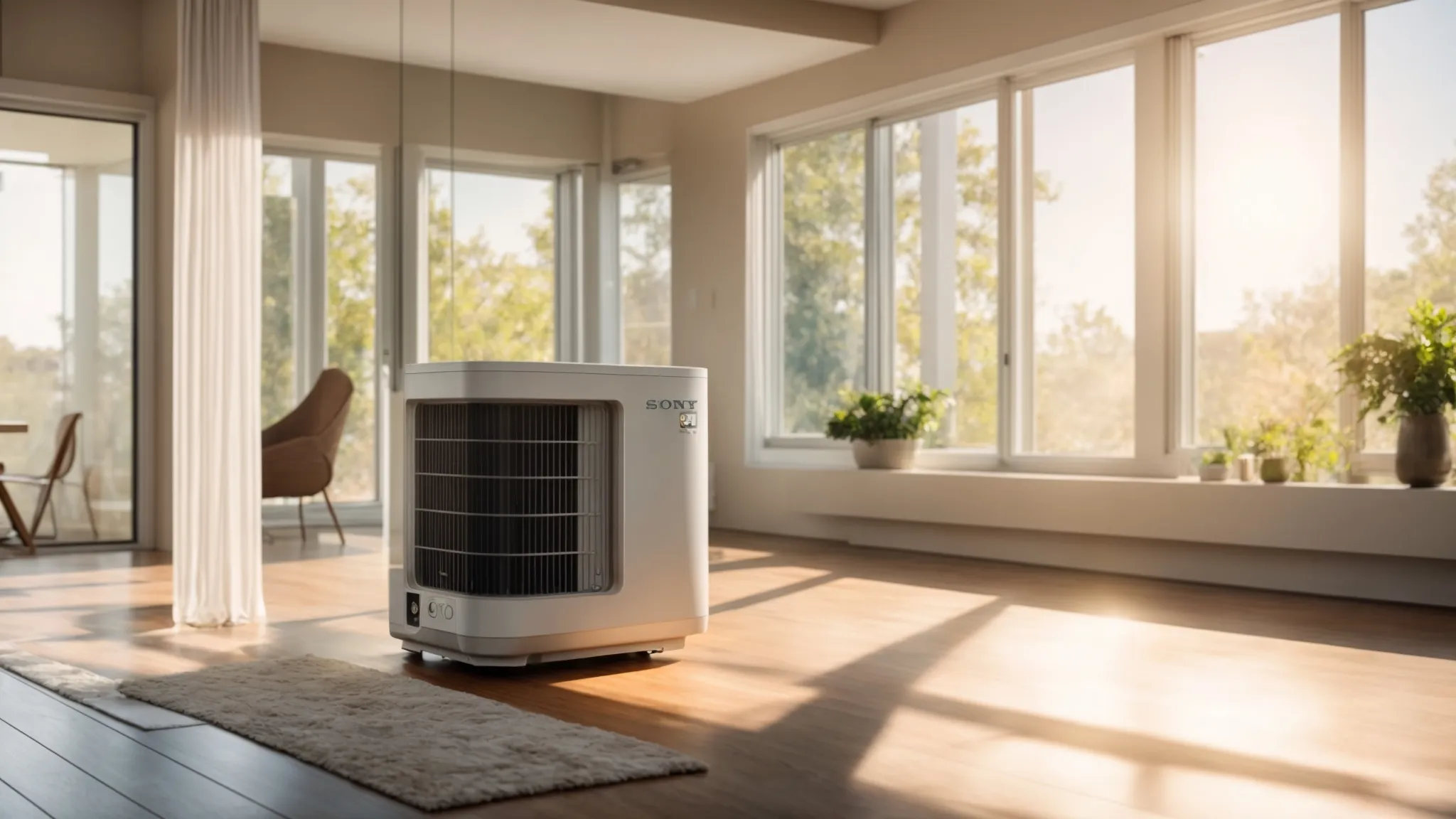
Haynes Heating and Air: Essential Tips for AC Repair
Is your air conditioning unit struggling to keep your home cool? Many homeowners face issues with their AC systems, especially during peak summer months. This article from Haynes Heating and Air covers essential tips for AC repair, including the importance of routine maintenance, the role of expert technicians, and cost considerations. Engaging with this content will equip readers with practical advice on optimizing their systems, addressing common problems, and selecting the right air conditioning setup. By understanding how to maintain an effective heat exchanger and air filter, individuals can enhance indoor air quality and efficiency.
Essential AC Repair Tips and Key Takeaways for Homeowners
- Regular maintenance is essential for extending the lifespan of air conditioning systems
- Understanding energy efficiency ratings helps reduce utility costs and improve indoor comfort
- Homeowners should recognize signs that indicate the need for HVAC repairs
- Utilizing smart technology can enhance control and efficiency in air conditioning systems
- Seeking professional guidance aids in selecting the right system for specific home requirements
Understanding Residential Air Conditioning Services

Understanding residential air conditioning services involves recognizing the various types of systems available, their energy efficiency standards, and the necessity of regular maintenance for longevity. Residents should also be aware of key signs that indicate their air conditioning system may require repair, as well as the importance of seasonal maintenance checks. Each of these elements contributes to effective HVAC performance and enhances customer service, ensuring homes remain comfortable throughout the year.
Types of Air Conditioning Systems Available
Various types of air conditioning systems are available to meet the diverse needs of homeowners. Central air conditioning units are common, as they efficiently cool entire homes using a thermostat to maintain desired temperatures, while ductless mini-split systems serve as a flexible option for specific areas. Alongside these systems, incorporating a dehumidifier can improve indoor air quality, and regular air duct cleaning enhances system efficiency, ensuring customers enjoy a comfortable living environment.
Energy Efficiency and What It Means for Your Home
Energy efficiency plays a crucial role in maintaining optimal residential HVAC systems. Homeowners looking for “residential HVAC repair near me” should focus on models with high energy efficiency ratings, as these can significantly reduce utility bills while providing consistent cooling and heating. Additionally, a well-maintained air conditioning system helps prevent mold growth, ensuring healthy indoor air quality, while pumps and other components function effectively to extend the lifespan of the entire system.
The Importance of Regular Maintenance for Longevity
Regular maintenance of air conditioning systems is vital for ensuring longevity and optimal performance. haynes heating and air emphasizes that consistent upkeep not only prevents unexpected breakdowns but also contributes to sustainability by minimizing energy consumption and lowering utility costs. By checking and replacing filters regularly, homeowners can enhance filtration and indoor air quality, ultimately prolonging the life of their equipment and fostering a more comfortable living environment.
Key Signs Your Air Conditioning System Needs Repair
Recognizing the key signs that an air conditioning system requires attention is essential for homeowners. Common indicators include insufficient cooling, unusual noises, or heightened energy bills, which may signal issues such as low refrigerant levels or problems with the heat pump. Addressing these symptoms quickly with a qualified HVAC residential service can prevent further damage and ensure efficient electric heating or natural gas systems continue to operate effectively.
| Signs of AC Repair Needs | Possible Causes | Recommended Action |
|---|---|---|
| Insufficient cooling | Low refrigerant levels | Contact HVAC service for refrigerant recharge |
| Unusual noises | Faulty heat pump or components | Schedule inspection with an HVAC technician |
| Increased energy bills | Inefficient electric heating or leaks | Evaluate for air leaks and consider maintenance |
Understanding Seasonal Maintenance Checks
Seasonal maintenance checks are essential for residential HVAC systems to ensure optimal performance and energy efficiency. These checks not only help in maintaining a high coefficient of performance but also play a role in reducing greenhouse gas emissions, allowing homeowners to contribute to a healthier environment. Engaging a reliable air conditioning company for these inspections can prevent costly repairs down the line and ensure systems are running efficiently; those searching for “residential AC service near me” should prioritize these maintenance sessions to keep their units in top shape.
- Importance of seasonal maintenance checks
- Benefits of high coefficient of performance
- Environmental impact including greenhouse gas emissions
- Finding reliable residential HVAC services
Understanding air conditioning is just the start. Now, it’s time to see how skilled technicians make these systems run efficiently and reliably.
The Role of Expert Technicians in AC Service

The qualifications and training of HVAC professionals are vital for effective air conditioning service, including specialized areas such as variable refrigerant flow and radiant heating and cooling. Homeowners benefit from hiring experienced technicians who can perform thorough duct cleaning and provide valuable insights during their service visits. Understanding customer reviews and knowing what questions to ask can further enhance the experience and ensure that residential HVAC repair needs are met efficiently.
Qualifications and Training of HVAC Professionals
The qualifications and training of HVAC professionals are crucial in ensuring effective air conditioning service. Technicians often complete specialized training programs that cover various aspects of heating systems, including installation, maintenance, and repair techniques. Additionally, local HVAC technicians frequently hold certifications that validate their expertise, making them reliable options for homeowners seeking assistance with their ceiling-mounted systems or electric heating solutions.
Benefits of Hiring Experienced Service Providers
Hiring experienced service providers for residential HVAC needs offers numerous advantages, especially in ensuring indoor air quality through effective ventilation. Knowledgeable technicians can perform thorough inspections of duct systems to identify issues that may affect efficiency and safety, such as lint buildup in areas surrounding clothes dryers. Moreover, experienced professionals can provide insights into warranty maintenance, helping homeowners make the most of their investments.
- Utilization of advanced techniques for optimal air filtration.
- Thorough inspections for potential duct issues.
- Guidance on warranty services and maintenance plans.
What to Expect During a Service Visit
During a service visit from Haynes Heating and Air, homeowners can expect a thorough assessment of their air conditioning system, including an inspection of the compressor and other critical components. Technicians often check for humidity issues and evaluate how a smart thermostat is functioning to optimize indoor climate control. If an emergency arises, their expertise allows for quick identification of problems, ensuring that systems are restored efficiently and effectively without causing further inconvenience.
Evaluating Customer Reviews and Testimonials
When evaluating customer reviews and testimonials for HVAC service providers like Haynes Heating and Air, it is essential for homeowners to consider overall satisfaction and the experiences shared regarding furnace repairs and maintenance. Positive feedback can provide insights into the reliability of technicians and the effectiveness of automation systems designed to enhance comfort while reducing carbon footprints. Prospective clients searching for “residential AC repair near me” can greatly benefit from these shared experiences, as they often reveal how responsive and skilled the professionals are in addressing common HVAC issues.
| Key Aspects | Details |
|---|---|
| Customer Feedback | Overall satisfaction levels and specific service experiences |
| Service Reliability | Consistency in completing furnace and HVAC repair needs |
| Impact on Comfort | Effectiveness of automation in enhancing home environment |
| Eco-Friendliness | Mention of carbon reduction and efficiency improvements |
Common Questions to Ask Your HVACTechnician
When engaging with an HVAC service provider, homeowners should ask specific questions to clarify the technician‘s approach to heating repair and overall efficiency enhancements. Inquire about the recommended steps for ensuring optimal performance of the system, including any necessary attic insulation or vent adjustments. Understanding the technician‘s experience and training can also shed light on their ability to identify issues effectively and propose sustainable solutions that can prolong the lifespan of the heating and cooling systems.
Expert technicians play a vital role in keeping systems running smoothly. Yet, homeowners can do simple tasks to maintain their units and save on costs.
DIY Maintenance Tips for Homeowners

Homeowners can effectively maintain their air conditioning systems by understanding basic troubleshooting steps for common issues, cleaning and replacing air filters, and optimizing thermostat settings for comfort. Additionally, preparing the AC system for each season and adhering to safety precautions during maintenance are crucial. These practical insights serve to enhance performance, making it easier to identify when to schedule service with residential HVAC contractors near them for issues requiring professional attention.
Basic Troubleshooting Steps for Common Issues
Homeowners can address minor air conditioning issues by following basic troubleshooting steps. First, they should inspect the air handler to ensure it operates correctly, as a malfunctioning component may hinder performance. Regular checks of building insulation can also prevent heat loss and ensure a comfortable climate while mitigating the buildup of carbon dioxide and other greenhouse gases inside the home:
- Check the thermostat settings for accuracy.
- Inspect and replace air filters regularly.
- Examine ductwork for blockages or leaks.
- Review the power supply to the unit.
Cleaning and Replacing Air Filters Effectively
Cleaning and replacing air filters regularly is a straightforward yet effective way to enhance residential heating and cooling systems. A clean air filter improves airflow and boosts the seasonal energy efficiency ratio (SEER) of HVAC systems, ultimately lowering energy costs. Homeowners should aim to inspect their filters every month, especially during peak usage seasons, and replace them as needed to ensure optimal performance and indoor air quality.
Optimizing Thermostat Settings for Comfort
Optimizing thermostat settings is vital for maximizing comfort and energy efficiency in residential air conditioning systems. By setting the thermostat to a higher temperature when no one is home and lowering it during peak hours, homeowners can significantly reduce energy consumption while maintaining a comfortable indoor atmosphere. Utilizing a programmable thermostat allows for automatic adjustments throughout the day, facilitating improved comfort and ensuring that HVAC systems operate efficiently, ultimately extending the life of the equipment and minimizing repair needs.
Seasonal Preparation Tips for Your AC System
To effectively prepare an air conditioning system for seasonal changes, homeowners should conduct a thorough inspection before temperatures rise. Ensuring that the outdoor unit is free from debris, such as leaves and dirt, helps maintain airflow and efficiency. Additionally, checking the thermostat functionality and replacing air filters can significantly enhance the system’s performance, promoting comfort and reducing unexpected repair needs as they transition to the warmer months.
Safety Precautions While Performing Maintenance
When performing maintenance on air conditioning systems, safety must be a priority. Homeowners should always begin by disconnecting power to the unit before starting any work to prevent electrical hazards. Wearing protective gear such as gloves and goggles can also ensure personal safety while handling potentially sharp components or hazardous substances inside the system. These precautions are essential for maintaining a safe environment and avoiding injuries during home air conditioning repairs.
Homeowners invest time and effort into maintenance, but challenges often arise beyond their control. Knowing the costs of air conditioning services prepares one for what lies ahead.
Costs Associated With Residential Air Conditioning Services

Understanding the costs associated with residential air conditioning services is important for homeowners. Key factors influencing repair and maintenance costs include the type of service required and system condition. Average pricing for common AC repairs provides a benchmark for budgeting. Homeowners should also be aware of warranty terms and financing options for significant repairs or installations, alongside strategies for managing routine maintenance expenses.
Factors That Influence Repair and Maintenance Costs
Several factors influence the costs associated with residential air conditioning repair and maintenance services. The type of system installed plays a significant role, as newer models may require different servicing techniques compared to older units. Additionally, the overall condition of the system affects pricing; well-maintained systems typically incur lower repair costs. Homeowners should also consider that emergency repairs may come at a premium, underscoring the importance of regular maintenance to prevent unexpected expenses.
Average Pricing for Common AC Services
The average pricing for common air conditioning services varies based on the type of repair or maintenance required. Routine maintenance checks typically range from $75 to $150, while repairs for minor issues may cost between $100 and $300. Homeowners seeking more significant repairs, such as compressor replacements, should anticipate costs of $1,000 or more, highlighting the need for regular maintenance to avoid extensive repairs:
- Routine maintenance checks: $75 – $150
- Minor repairs: $100 – $300
- Compressor replacements: $1,000+
Understanding Warranty and Service Agreements
Understanding warranty and service agreements is crucial for homeowners when considering costs related to residential air conditioning services. These agreements typically outline what repairs and maintenance are covered, potentially saving homeowners significant expenses over the lifespan of their systems. Engaging with a trusted provider like Haynes Heating and Air can clarify the specifics of these warranties, ensuring homeowners receive full benefits and protection for their investment in AC repair and maintenance.
Financing Options for Major Repairs or Installations
Homeowners facing significant repairs or installations of air conditioning systems often find financing options beneficial to manage costs effectively. Many HVAC service providers, including Haynes Heating and Air, offer flexible payment plans that allow homeowners to spread out costs over time, reducing the financial burden. Additionally, exploring third-party financing solutions can provide various options tailored to individual needs, ensuring that essential repairs or installations do not disrupt household finances:
| Financing Option | Description |
|---|---|
| Provider Payment Plans | Flexible plans allowing homeowners to pay for services over specified periods. |
| Third-Party Financing | Options available to homeowners for tailored financing solutions, often with low-interest rates. |
| Credit Card Financing | Using credit cards with promotional financing offers for immediate repairs. |
Strategies for Budgeting AC Maintenance Expenses
To effectively budget for AC maintenance expenses, homeowners should begin by creating a dedicated fund specifically for HVAC services, allowing for predictable costs throughout the year. Setting aside a small amount each month can accumulate over time, ensuring that sufficient funds are available for both routine maintenance and unexpected repairs. By planning for these expenses, residents can alleviate financial strain and ensure their air conditioning systems remain in optimal condition, ultimately enhancing comfort and preventing costly breakdowns.
With costs laid bare, the next step is clear. Choosing the right air conditioning system can bring comfort and savings, making it a decision worth pondering.
Selecting the Right Air Conditioning System

Selecting the Right Air Conditioning System
When determining the ideal air conditioning system, homeowners should assess their cooling needs, compare various options, and consider environmental implications. Professional guidance can aid in making informed equipment choices, while understanding the installation process and its timeline is crucial for seamless implementation. This section provides practical insights into these essential aspects for optimal system performance.
Assessing Your Home’s Cooling Needs
Assessing a home’s cooling needs is a crucial step in selecting the appropriate air conditioning system. Homeowners should consider factors such as the size of their living space, the number of occupants, and local climate conditions to determine the required cooling capacity. For instance, larger homes may necessitate central air conditioning units with adequate BTU ratings, while smaller spaces might benefit from efficient ductless systems that provide flexibility and targeted cooling.
- Evaluate the size of living space
- Consider the number of occupants
- Assess local climate conditions
- Determine the required cooling capacity
- Explore options such as central or ductless systems
Comparing Different Air Conditioning Options
When comparing different air conditioning options, homeowners should focus on the specific needs of their living spaces. Central air conditioning systems are ideal for larger homes, as they provide effective cooling through a network of ducts, maintaining comfort across multiple rooms. In contrast, ductless mini-split systems offer flexibility, allowing for targeted cooling in individual rooms, making them perfect for smaller spaces or homes without existing ductwork. By evaluating factors like space size and personal cooling preferences, homeowners can make informed decisions that enhance energy efficiency and comfort in their homes.
Environmental Considerations in System Selection
When selecting an air conditioning system, environmental considerations are increasingly important for homeowners aiming to reduce their ecological footprint. Choosing energy-efficient models that meet contemporary standards can lead to significant energy savings and lower greenhouse gas emissions, ultimately benefiting both the environment and the household budget. For example, options like SEER-rated systems not only provide optimal cooling performance but also reflect a commitment to sustainability, which is essential for responsible homeownership today:
| Environmental Considerations | Benefits |
|---|---|
| Energy Efficiency Ratings (SEER) | Lower energy bills and reduced carbon footprint |
| Refrigerant Type | Minimizing ozone depletion potential |
| System Sizing | Optimized performance and reduced energy waste |
Professional Guidance on Equipment Choices
When selecting an air conditioning system, seeking professional guidance can greatly simplify the decision-making process. Experienced technicians from Haynes Heating and Air can assess specific home requirements, such as size and layout, to recommend suitable options tailored to individual cooling needs. By considering energy efficiency ratings and installation requirements, homeowners can make informed choices that not only enhance comfort but also contribute to long-term savings and environmental sustainability.
Understanding Installation Process and Timeline
Understanding the installation process and timeline for a new air conditioning system is essential for homeowners. Typically, the installation can take anywhere from a few hours to a full day, depending on the complexity of the system and the specific requirements of the home. Engaging a professional service like Haynes Heating and Air ensures that the installation is handled efficiently and safely, allowing homeowners to enjoy optimal cooling performance sooner rather than later.
| Installation Steps | Timeline | Description |
|---|---|---|
| Assessment | 1-2 hours | Evaluation of home needs and system selection. |
| Preparation | 1 hour | Clearing the installation area and securing tools. |
| Installation | 3-6 hours | Setting up the air conditioning unit, including ducts. |
| Final Checks | 1 hour | Testing the system for functionality and efficiency. |
With the right air conditioning system chosen, attention now turns to what lies ahead. The future of residential cooling offers exciting innovations that promise to change how homes stay comfortable.
Future Trends in Residential Air Conditioning

Innovations in energy-efficient technologies are shaping the future of residential air conditioning, enhancing performance while reducing environmental impact. The integration of smart home systems with AC units offers homeowners greater control and efficiency. Additionally, the growing emphasis on renewable energy solutions and evolving industry standards necessitates preparation for upcoming changes in HVAC technology. Understanding these trends is vital for effective AC repair and maintenance in the years to come.
Innovations in Energy-Efficient Technologies
Innovations in energy-efficient technologies are rapidly transforming residential air conditioning systems, allowing homeowners to enjoy greater comfort while reducing energy costs. For instance, advanced inverter-driven compressors adjust their output based on the actual cooling demand, enhancing efficiency and lowering electricity bills. Additionally, integrating smart technology with air conditioning units allows for remote monitoring and control, helping optimize system performance and maintain ideal temperatures with minimal energy usage:
- Inverter-driven compressors for improved efficiency
- Smart technology for remote monitoring and control
- Enhanced comfort and cost savings
Smart Home Integration With AC Systems
Smart home integration with air conditioning systems represents a significant advancement in residential HVAC technology. By connecting HVAC units to smart home devices, users can remotely manage temperature settings, monitor energy usage, and receive alerts for maintenance needs, enhancing both comfort and efficiency. This integration not only allows homeowners to optimize their cooling systems based on daily schedules but also fosters energy savings by adjusting settings when the home is unoccupied. For effective AC repair and maintenance, utilizing these smart technologies can provide insights that facilitate proactive service interventions, ultimately prolonging the lifespan of the equipment.
The Impact of Renewable Energy Solutions
The impact of renewable energy solutions on residential air conditioning is becoming increasingly significant as homeowners seek efficient and sustainable options. By utilizing solar panels or wind energy, households can power their air conditioning systems while reducing utility costs and minimizing their environmental footprint. This transition not only promotes energy independence but also aligns with modern trends toward greener home solutions, paving the way for enhanced AC performance and lower maintenance needs.
- Integration of solar panels for sustainable energy use.
- Utilization of wind energy to power HVAC systems.
- Reduction of utility costs through renewable sources.
- Environmental benefits promoting a greener footprint.
Evolving Industry Standards and Regulations
As the HVAC industry evolves, so do the standards and regulations governing air conditioning systems. Compliance with updated energy efficiency guidelines is crucial for homeowners seeking to minimize environmental impact while optimizing performance. Haynes Heating and Air stays informed on these changes, ensuring clients benefit from the latest compliance measures that can lead to both cost savings and improved system reliability.
Preparing for Changes in HVAC Technology
As technology continues to advance, preparing for changes in HVAC technology is essential for homeowners to maintain efficient air conditioning systems. Homeowners should stay informed about emerging trends such as smart thermostats and energy-efficient units that adapt to household needs, ultimately leading to enhanced comfort and reduced energy consumption. Regular communication with HVAC professionals at Haynes Heating and Air can help homeowners navigate these changes and implement solutions that align with new technological advancements:
- Staying informed about smart technologies
- Understanding energy efficiency standards
- Regular consultations with HVAC professionals
- Adapting to new repair techniques and tools
Conclusion
Haynes Heating and Air provides invaluable insights into maintaining optimal air conditioning systems, emphasizing the significance of regular maintenance and timely repairs. Homeowners can enhance energy efficiency and comfort by recognizing key signs that indicate their system requires attention. Understanding the costs associated with services and exploring financing options allow for better budgeting and planning for necessary repairs. By staying informed and engaging with experienced HVAC professionals, residents can ensure their air conditioning systems operate effectively while promoting a healthier living environment.
